Demand planning
The position settings have been located since 03.04.2025 under Local Settings/General.
What is the MEO?
The MEO (Mitarbeitereinsatzorientierung - Employee Deployment Orientation) is the central element that enables Nesto to calculate your personnel requirements as accurately as possible based on sales forecasts.
The MEO defines the required target staffing per position within a specific sales corridor. That means the target staffing can be read off in the MEO for a given sales volume. Depending on the situation, different MEOs can be used throughout the day. This is useful, for example, when lunch and dinner business differ significantly.
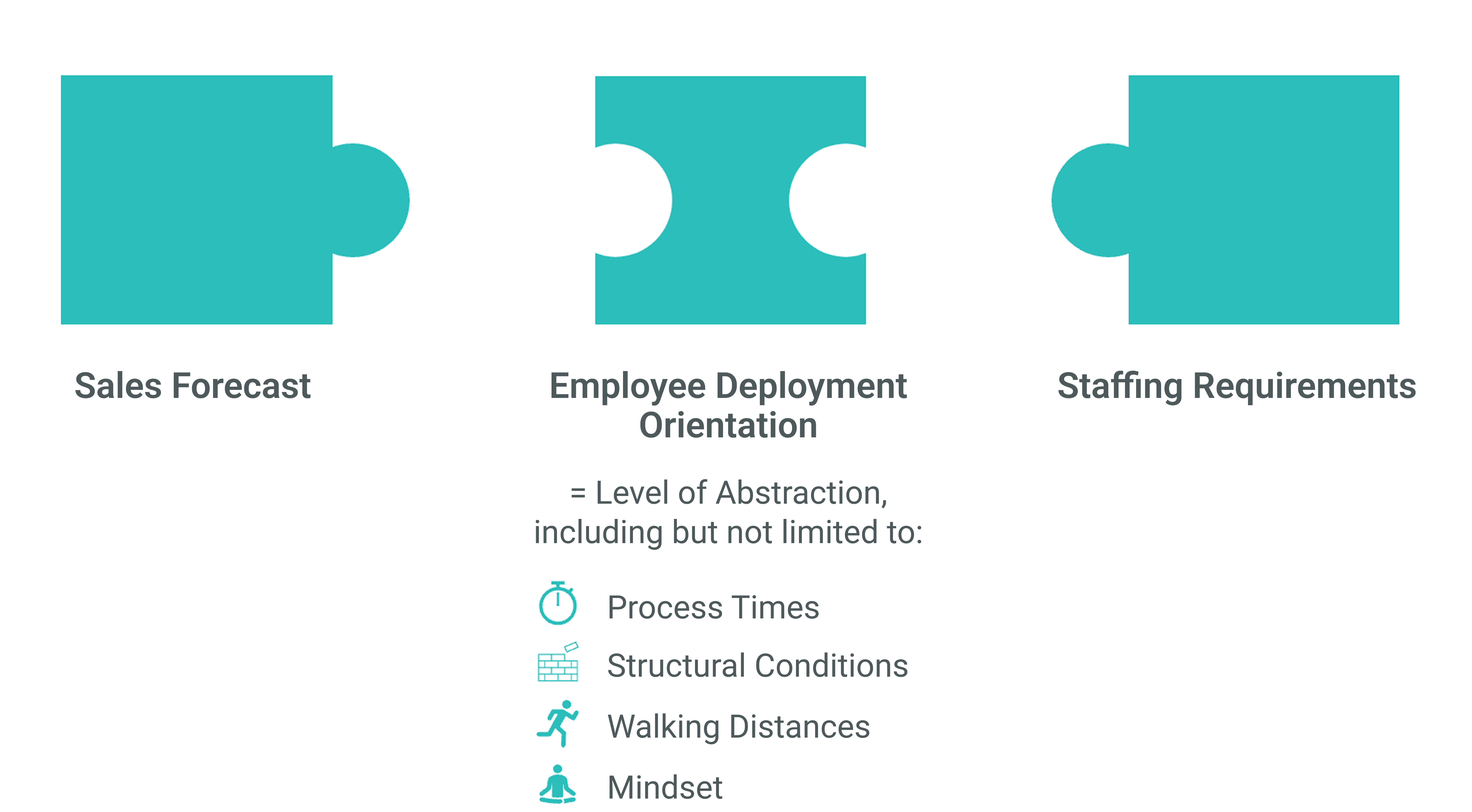
The dynamic personnel requirement is oriented to sales. The higher the forecasted sales, the more personnel are needed. The lower the expected sales, the fewer employees are needed. Personnel requirements for specific hourly sales ranges are defined in the Mitarbeitereinsatzorientierung (MEO).
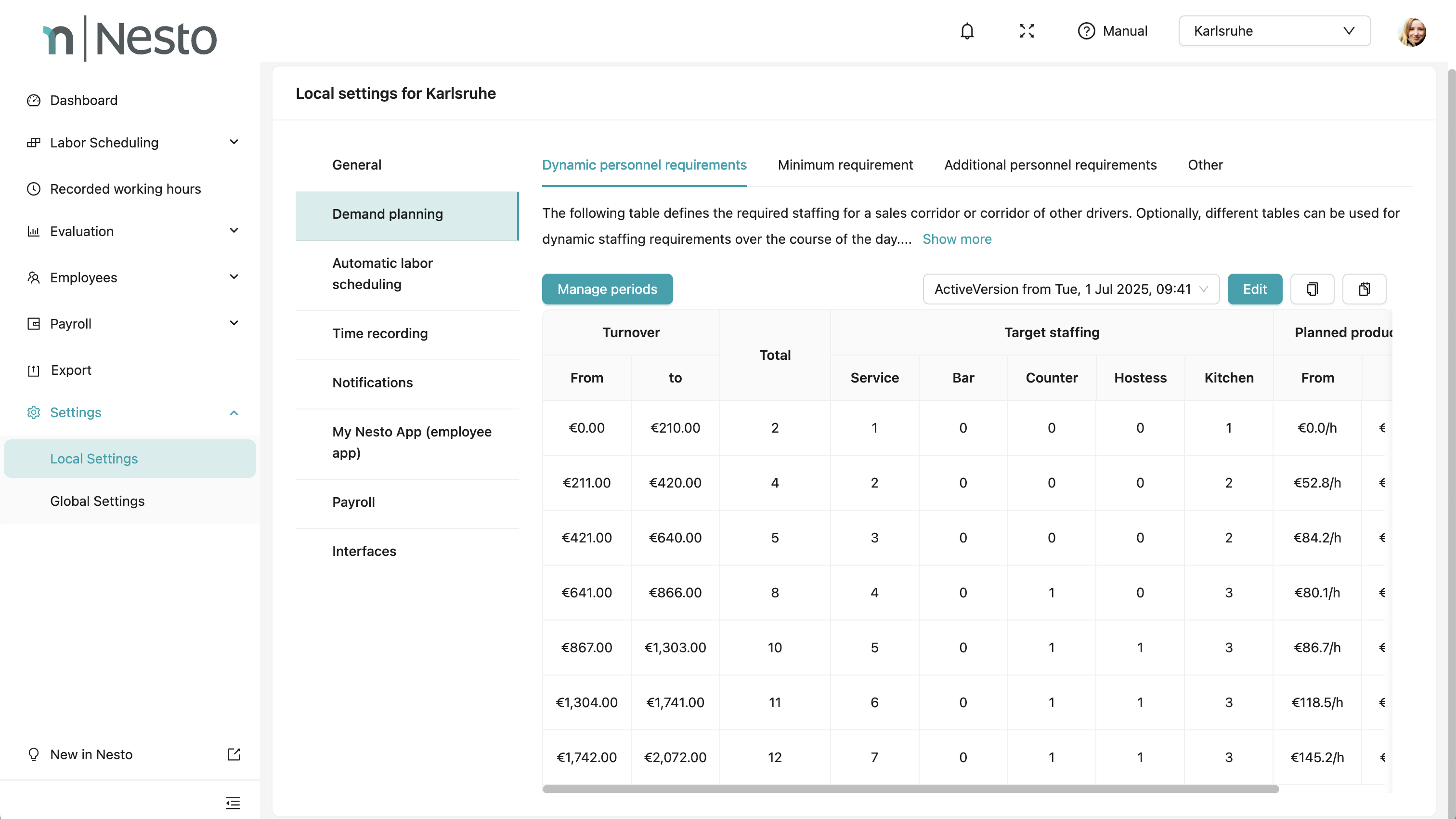
Make sure that the sales corridors in the MEO represent hourly sales.
How can I edit the MEO?
1. Click on “Edit”
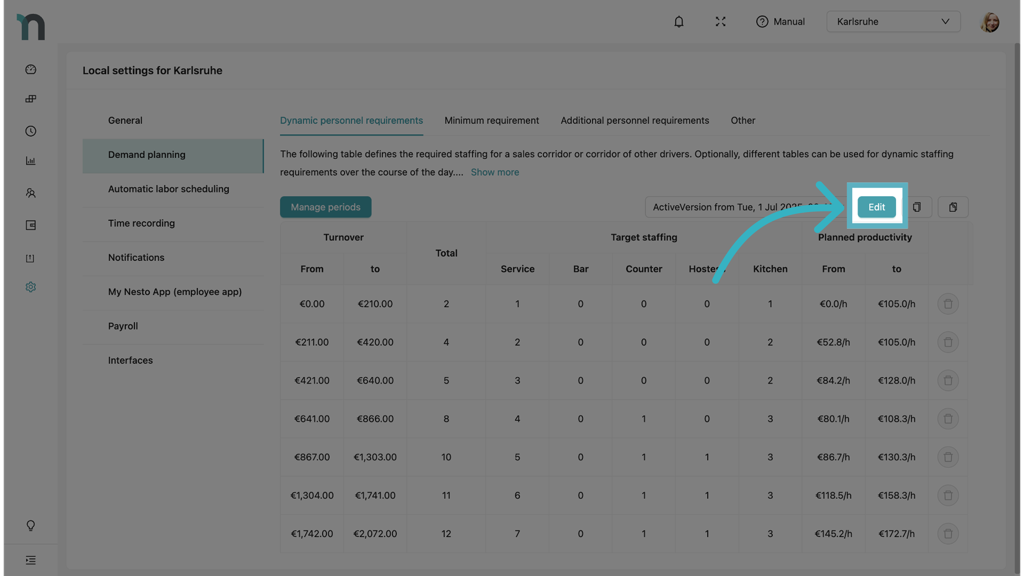
2. Now you can edit the fields, add new sales corridors, and delete sales corridors.
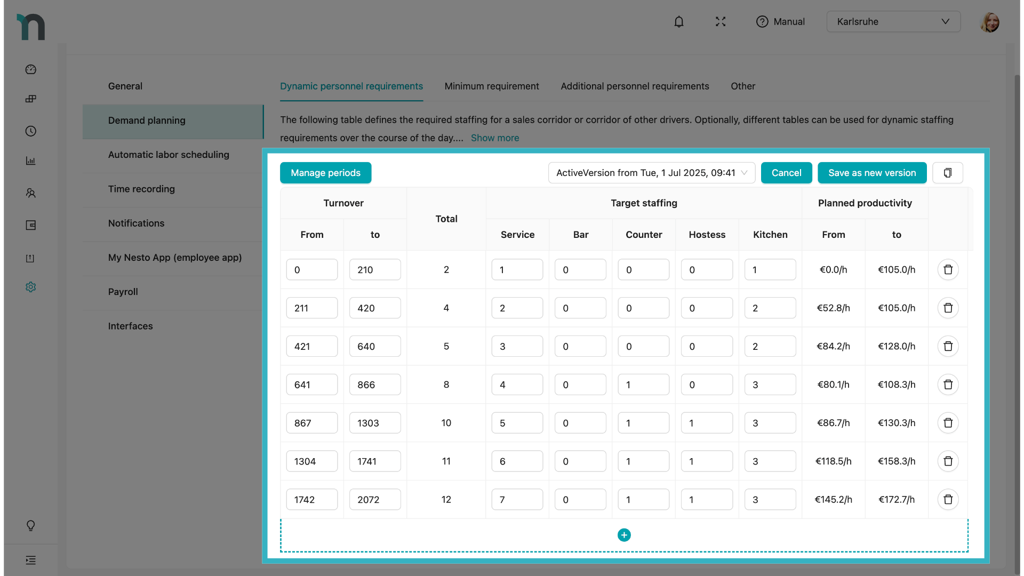
3. If you make a change to the MEO, you can save it as a new version. You can also reactivate old versions at any time.
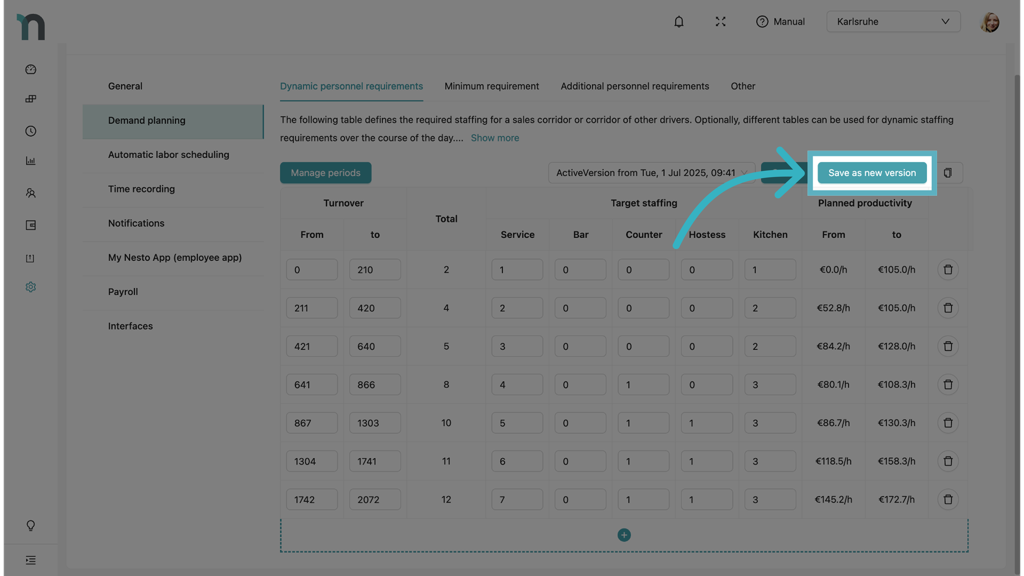
What is the minimum requirement?
The minimum requirement guarantees a minimum staffing at a certain time, regardless of sales. This is ideal for representing off-peak hours during which no sales are generated but preparatory or follow-up tasks still need to be done.
If the dynamic requirement is higher than the minimum requirement, the dynamic requirement from the MEO is used. If the minimum requirement is higher than the requirement from the MEO, the minimum requirement is used.
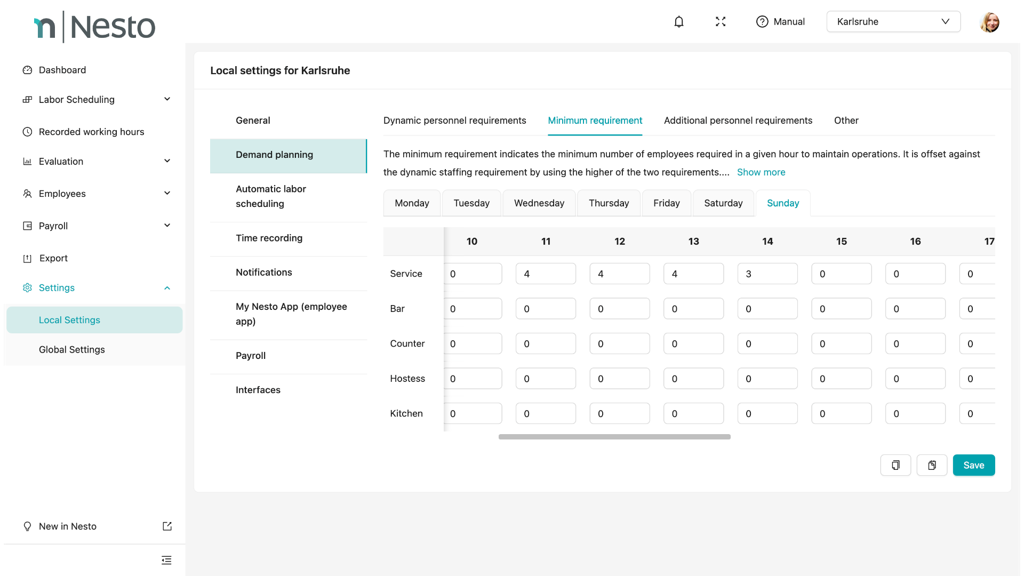
Example: The minimum requirement in service on Sundays between 11:00 and 12:00 is set at four person-hours. Even if the dynamic personnel requirement from the sales forecast and the MEO for a Sunday between 11:00 and 12:00 is only three person-hours, a requirement of four person-hours will be displayed for that hour.
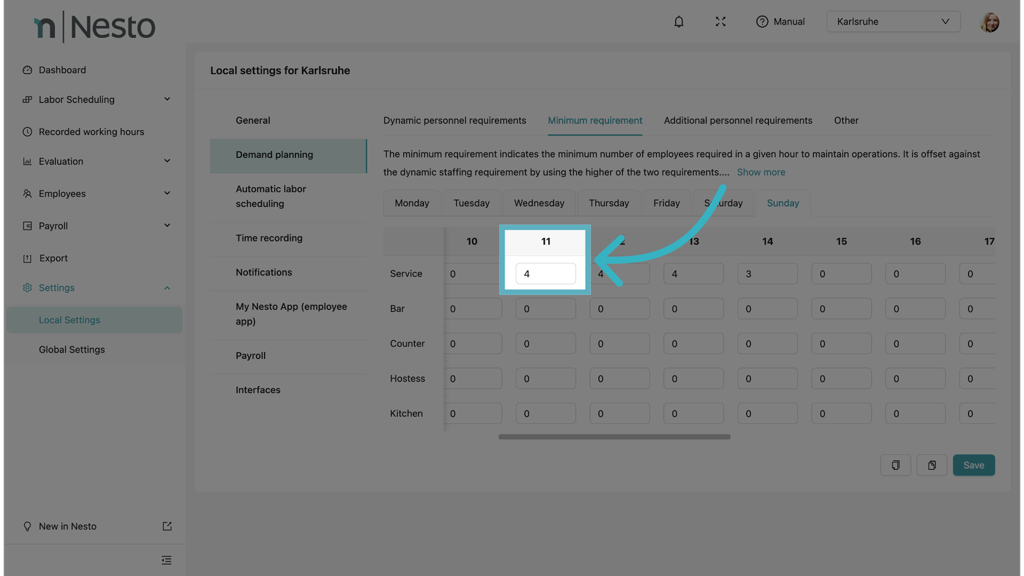
The minimum requirement in a column always refers to the upcoming hour.
Example: The minimum staffing of four is between 11:00 and 12:00.
What is the additional personnel requirement?
The MEO defines the target staffing based on hourly sales. Personnel requirements that are not directly influenced by sales can be recorded statically in Nesto. The additional requirement is considered independently of MEO and minimum staffing. Here, all requirements can be mapped that are not sales-dependent and usually occur in addition to operational business. All hours entered here are added to the requirement.
For example, hours for receiving deliveries can be recorded here. Additional staffing can be set for each weekday, which is added to the result from the dynamic personnel requirement and the minimum requirement.
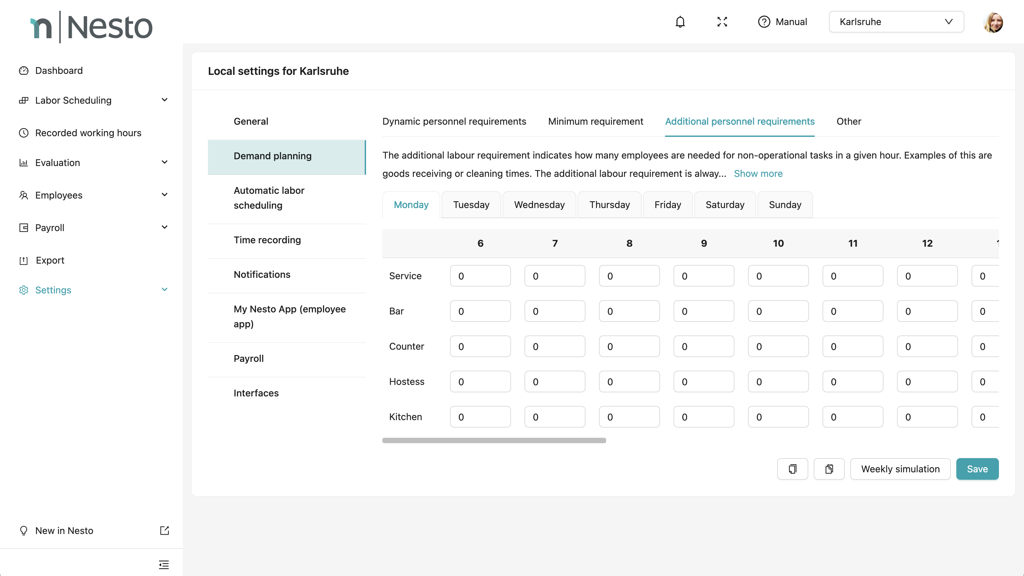
The additional personnel requirement in a column always refers to the upcoming hour.
Example: The additional personnel requirement of one is between 08:00 and 09:00.
It is possible to copy and paste the additional personnel requirement from one weekday to other weekdays. If you have the same additional personnel requirement for your operation every weekday, you only need to enter it for one day and can copy and paste it for the other 6 days.
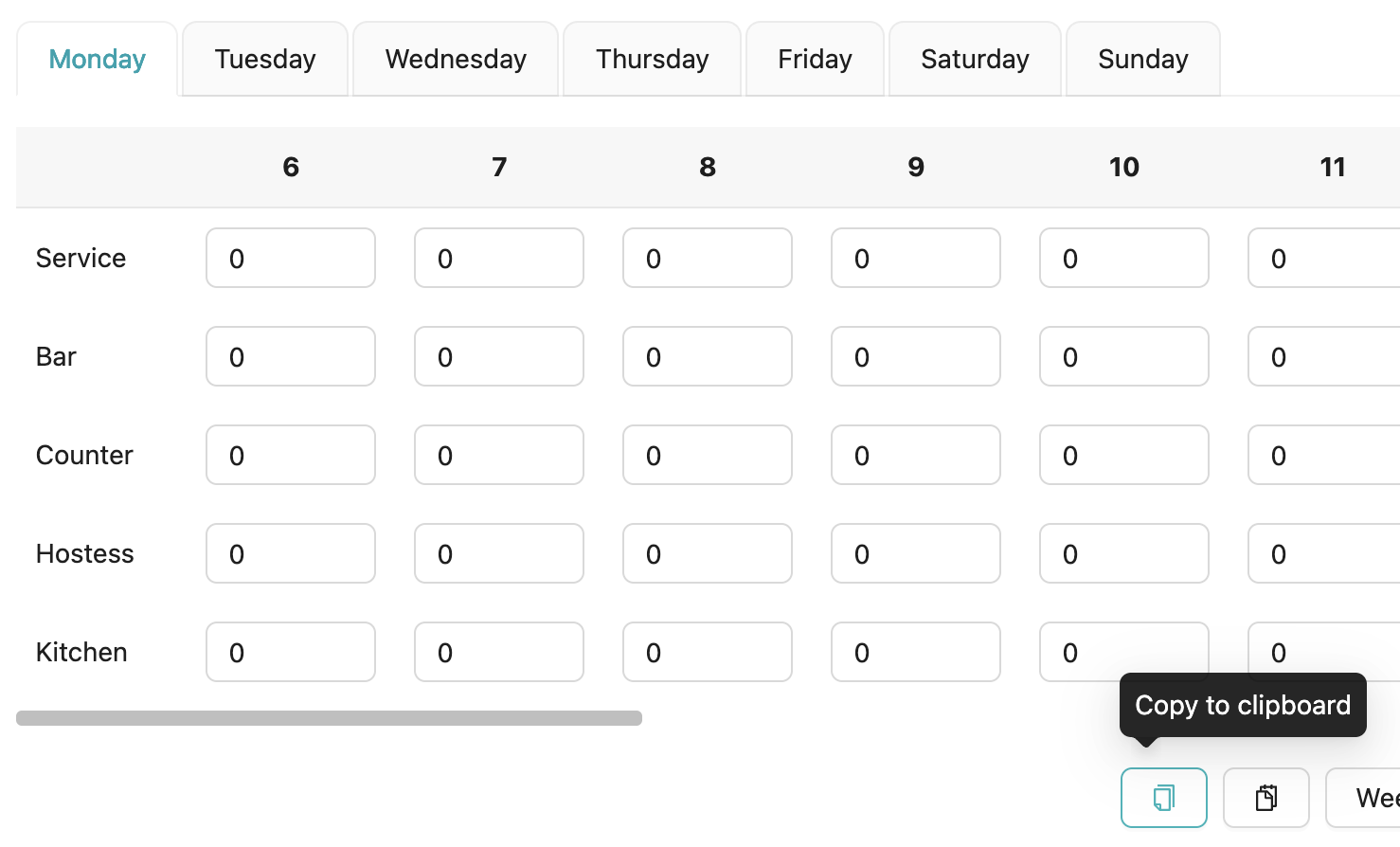
Example Calculation:
Sales | Dynamic Personnel Requirement |
|---|---|
0 - 100 € | 1 |
101 - 180 € | 2 |
181 - 300 € | 3 |
Minimum staffing and additional requirement
| 9 - 10 am | 10 - 11 am | 11 - 12 pm | 12 - 1 pm |
|---|---|---|---|---|
Minimum requirement | 1 | 2 | 2 | 2 |
Additional personnel requirement | 1 | 1 | 1 | 0 |
Personnel requirement with example sales pattern
| 9 - 10 am | 10 - 11 am | 11 - 12 pm | 12 - 1 pm |
|---|---|---|---|---|
Sales | 0 € | 50 € | 200 € | 250 € |
Dynamic requirement | 0 | 1 | 3 | 3 |
Minimum requirement | 1 | 2 | 2 | 2 |
Additional personnel requirement | 1 | 1 | 1 | 0 |
Total requirement | 1 + 1 = 2 | 2 + 1 = 3 | 3 + 1 = 4 | 3 + 0 = 3 |
